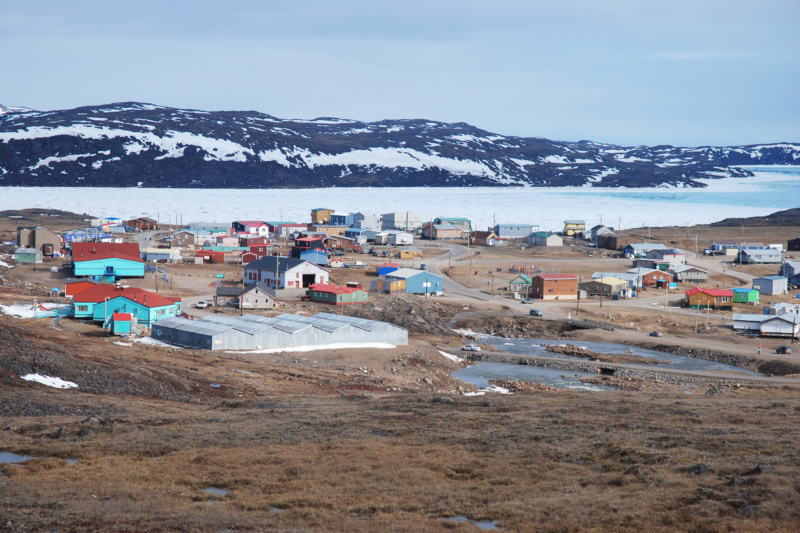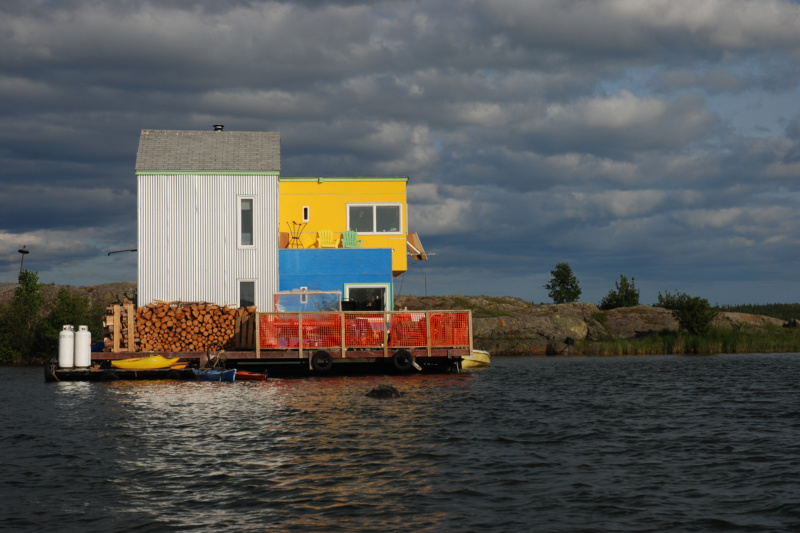For communities across the Canadian North, chronic housing insecurity is an undeniable public policy priority and human rights issue. Yet current strategies to address chronic housing need and homelessness tend to comprise policies and programs developed outside the North, and are thus disconnected from northern needs, realities, priorities and strengths. Contemporary housing interventions in Canada are, by and large, based on the CMHC housing continuum; a continuum that positions homelessness as one end of the housing spectrum, and market home ownership at the other. Similarly, supportive housing programs are premised on the existence of an integrated continuum of social and health supports. Northern community partners are clear: the housing and support continuum in northern communities is different from what is commonly represented. As a result, programs, policies and services that are informed by southern Canadian models are ill-equipped to address the priorities of northern communities and effectively engage northern community cultures and contexts. By working in partnership with communities across the provincial and territorial Norths to advance a northern housing continuum, this Partnership project informs the development and implementation of context-based, culturally safe programs, services and models for housing and homelessness, developed by and centered in northern communities. Our pan-northern, multi-scalar and interdisciplinary approach is critical to effectively bridging the gaps between research outcomes and impact on northern housing by facilitating the translation and implementation of research into policy and practice.
Under the direction of Dr. Julia Christensen, CRC in Northern Governance and Public Policy, and hosted by Memorial University of Newfoundland (MUN), this project aims to facilitate connections and collaborations between communities in the territorial and provincial Norths that are experiencing homelessness and housing insecurity. The core partnership formed through this project is comprised of communities working in partnership with university-based researchers and with collaborators from non-governmental organizations, Indigenous governments and communities, municipal and provincial/territorial governments, and private sector stakeholders. This partnership represents rural and urban communities from Labrador, Nunavut, Nunavik and Eeyou Istchee in Northern Quebec, northern Ontario, northern Manitoba, northern Saskatchewan, northern B.C., the Yukon and the Northwest Territories. This geographically inclusive partnership seeks to expand our understanding of “the North” by illuminating shared experiences, challenges and opportunities between and across locales in both the territorial and provincial Norths, as well as the north-south geographies of homelessness and housing insecurity. Bringing together partners across academia, government and advocacy, the project creates, shares and mobilizes knowledge on homelessness and housing insecurity. It identifies possibilities for culturally-safe, contextually-relevant housing creation and construction, housing programs, and wrap-around social supports for northerners experiencing housing insecurity and homelessness. In doing so, it expands understanding and fills knowledge gaps concerning northern homelessness and housing insecurity across Canada’s Norths and ultimately fills these gaps through the development of a Northern Housing Strategy.
Our objectives are to:
- Understand the meaning of home across northern community and regional contexts, which can inform a framework for promoting northern housing security across northern contexts
- Advance a contextually- and culturally-relevant understanding of the northern housing continuum
- Develop models for integrating health, wellness and home in northern housing strategies
- Examine the sociocultural, economic and environmental dimensions of sustainability relevant to the longevity and efficacy of northern housing programs, policies and designs
- Advance a comprehensive, flexible northern housing strategy to support community priorities for housing and related supports.
Together, these objectives facilitate knowledge creation, sharing, mobilization, and collaboration through the development of culturally-safe, contextually-relevant housing programs, health and social services, and policies for northerners experiencing homelessness.
Focus Areas
- Supportive Housing Programs and Services
- Governance, Policy and Self-Determination
- Housing, Community Design and the Built Environment
- Health Synthesis Stream


